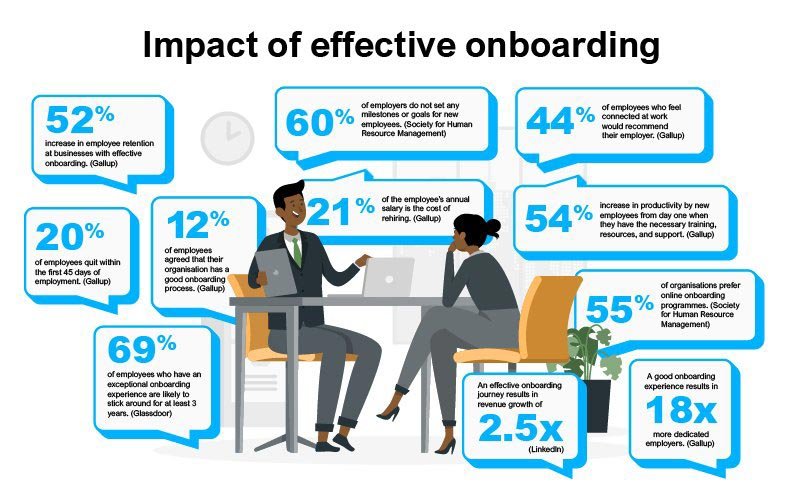Futureproof your eLearning for 2025 and beyond.
Employee onboarding is critical to new hires and the organization’s long-term success. Effective onboarding has never been more crucial with the increased move to hybrid and remote working.
“The way people work has changed,” said Michael Gullan, CEO of G&G Advocacy, an eLearning consultancy. “How you onboard your employees, particularly your internal and external sales and referral partners, has to be relevant and meet employees where they’re at while achieving objectives and integrating, motivating, and preparing new hires for the road ahead.”
The research underscores the importance of onboarding new employees and internal and external stakeholders to ensure the latest information about the organization is retained and applied and that new stakeholders are productive, committed, and ready to succeed in their new roles.
Why onboarding is one of the most critical training events
The research shows that effective onboarding radically improves employee retention as it helps them feel welcomed, supported, and integrated into the organization. “Organisations can accelerate employees’ learning curves and empower them to make a meaningful contribution to the company’s goals more quickly and efficiently,” said Gullan.
Onboarding cultivates commitment by aligning new internal and external sales and referral partners with the culture, mission, business goals, and information to cultivate loyalty, engagement, and dedication. “With eLearning, your onboarding does not have to be “one-size-fits-all,” it can be personalized by employee profile so the information the individual learns is relevant to them in their role,” said Gullan.
New ways of making an impact with “eOnboarding”
“Onboarding is much more than procedures and paperwork,” said Gullan. “The most effective onboarding is holistic and culture building.”
Besides the obvious benefits of taking your onboarding online, such as flexible access, efficient optimization, and updates, consistent messaging, reduced cost of facilitators, venues, travel, confidentiality, and granular analytics and reporting, eOnboarding is exciting and innovative. Gullan provided some examples of how to innovate eOnboarding:
Include welcome messages from key individuals using video and audio.
Assign a digital mentor and coach – you can do this at scale using eLearning.
Make it interactive with rich media, such as video, audio, scenarios, and simulations.
Provide ample opportunities to practice and apply new information.
Turn the organization’s vision, mission, and strategy into a story, reinforcing your values and why it’s a great place to work.
Include downloadable checklists so new employees can navigate their onboarding steps and processes.
Use gamification to engage new hires and connect them to the whole team.
Analyze the data and optimize.
“The main goal of onboarding should be to reinforce culture and align employees with the organization’s goals,” Gullan said. Onboarding is crucial to the employee and the organization’s success. It should be personalized and appeal to the modern employee. When you use Content Capsules™, your onboarding will be more engaging and effective for adult learners who face frequent interruptions and distractions throughout the day.
“Organisations and the industries in which they operate are dynamic. Online learning is proven to level up your onboarding,” said Gullan. “When used strategically, it can reduce onboarding by five days. And should be regularly updated and form part of every employee’s continuous learning KPIs so they are always aligned with the organization’s dynamic processes and goals.”
Onboarding is integral to an employee’s experience and can set them up for success. There’s ample research proving how successful exceptional onboarding programs are, and the significant financial impact they can have is evident.

